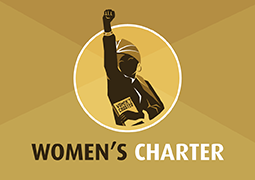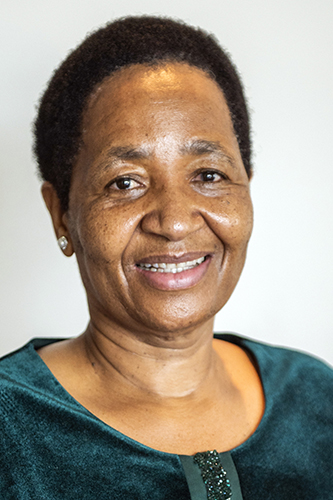
After travelling the country soliciting the views of South African women on the state of women’s development in the country, a report-back session on the review of the Women’s Charter for Accelerated Development took place in the Western Cape during Women’s Month in Cape Town at the Life Conference Centre in Sea Point.
The session’s goal was to solicit a commitment to institutionalised gender-mainstreaming and gender-responsive budgeting from representatives of the Western Cape Government. In attendance at the meeting were representatives from the Western Cape government, the Commission for Gender Equality, the Fiscal and Financial Commission (FFC) and the Ministry of Social Development, to name but a few.
It is believed that gender mainstreaming and gender-responsive budgeting will support women’s development and their economic emancipation. This meeting built on a proposal to review the Women’s Charter that was made in Guguletu in Cape Town in 2020.
The champion of this current process, the Deputy Chairperson of the National Council of Provinces, Ms Sylvia Lucas, told the gathering that the Women’s Charter was signed in 1954 after women from various formations and political affiliations agreed, under banner of the Federation of South African Women, to advance women’s political and economic emancipation.
Ms Lucas explained that the review of the Charter sought to establish a new regime for women’s rights that will determine the efficacy of legislation and policies meant to advance women development. It has exposed discrepancies between policy and institutional practices. A key finding of the review is that women’s development needs to become an integral part of local and provincial governments’ budgeting framework, because it is these levels of government that are the main drivers of service delivery and social change, Ms Lucas explained.
The report on the review sets clear targets and includes a road map for policy change and assessment that will bring a new dimension to gender mainstreaming and gender responsive budgeting in the public and private sectors.
The Deputy Chairperson took the opportunity to warn, however, that women’s advancement should not be a partisan undertaking. “Poverty, inequality and unemployment have no regard for one’s political affiliation. We need to join hands and work together as women, not as members of different political parties. We should assess the progress made in advancing our issues collectively as women, to ensure that we keep government, as policy maker, accountable,” she emphasised.
The Deputy Speaker of the Western Cape Legislature, Ms Beverley Schafer, said the Western Cape legislature supports the national government’s gender mainstreaming programme in district municipalities using the Revenue Bill, which tracks how funds are used and can determine if they serve women’s interests. However, Ms Schafer pointed out that currently the gender reporting process lacks an accountability framework. Therefore, there is no way of measuring the planning and implementation of gender-responsive budgeting, nor is there any investment to address these gaps.
FFC Chairperson Dr Nombeko Mbava acknowledged that women still suffer physical and emotional abuse and the effects of inequalities. Speaking shortly after the horrific rape of eight young girls in Krugersdorp, Dr Mbava called on the government to ensure the security and safety of all South African women.
She went on to summarise the FFC’s research into gender-responsive budgeting in the annual performance and strategic plans of the Western Cape provincial government’s departments of health, education and social development. The FFC assessed these plans through a gender lens and asked: “Do they include or exclude women in their design? And does budget spent by them address gender parity in health, education or social development or whether women are included in their allocation and expenditure equitably?” Dr Mbava explained.
The FFC found that the Western Cape government’s plans are in line with national gender responsive planning and monitoring frameworks, but this is not yet reflected in all departments, particularly in skills allocation, budgeting, policies and strategic plans.
The FFC research also criticised a lack of disaggregated information on the allocation of resources and economic opportunities based on gender. Gender mainstreaming needs to be monitored and evaluated effectively to ensure that gender targets are met and that they promote gender-focussed interventions, Dr Mbava pointed out.
In her presentation, the Deputy Director-General of Economic Coordination and Stakeholder Engagement, Ms Jo-Ann Johnston, lamented inflation and the shrinking budgets that contribute to growth downgrades. She further stated that although gross domestic product in the Western Cape is expected to grow, employment is not predicted to follow the same trajectory.
What this means for women is that they will continue to face significant challenges. Her department has thus decided to ease Western Cape women’s path to doing business, particularly in relation to investment, exports, and skills and enterprise development. One project that embodies the department’s commitment to women entrepreneurs is the Women in Business Programme in Khayelitsha, which develops women’s business skills, allowing them to participate fully in the Western Cape government’s various economic programmes.
Abel Mputing
8 August 2022

